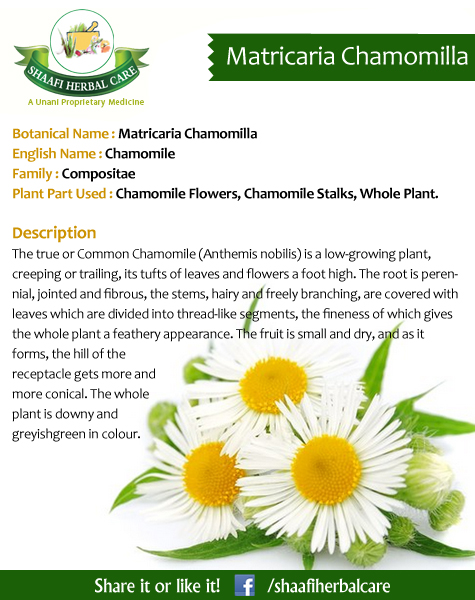
Health Benefits
Chamomile has been used for centuries in teas as a mild, relaxing sleep aid, treatment for fevers, colds, stomach ailments, and as an anti-inflammatory, to name only a few therapeutic uses. Chamomile may be used internally or externally. Extensive scientific research over the past 20 years has confirmed many of the traditional uses for the plant and established pharmacological mechanisms for the plant’s therapeutic activity, including antipeptic, antispasmodic, antipyretic, antibacterial, antifungal, and anti-allergenic activity.
Recent and on-going research has identified chamomile’s specific anti-inflammatory, anti-bacterial, muscle relaxant, antispasmodic, anti-allergenic and sedative properties, validating its long-held reputation. This attention appears to have increased the popularity of the herb and nowadays Chamomile is included as a drug in the pharmacopoeia of 26 countries.
Specifically, chamomile may:
- As a tea, be used for lumbago, rheumatic problems and rashes.
- As a salve, be used for hemorrhoids and wounds.
- As a vapor, be used to alleviate cold symptoms or asthma.
- Relieve restlessness, teething problems, and colic in children.
- Relieve allergies, much as an antihistamine would.
- Aid in digestion when taken as a tea after meals.
- Relieve morning sickness during pregnancy.
- Speed healing of skin ulcers, wounds, or burns.
- Treat gastritis and ulcerative colitis.
- Reduce inflammation and facilitate bowel movement without acting directly as a purgative.
- Be used as a wash or compress for skin problems and inflammations, including inflammations of mucous tissue.
- Promote general relaxation and relieve stress. Animal studies show that chamomile contains substances that act on the same parts of the brain and nervous system as anti-anxiety drugs. Never stop taking prescription medications, however, without consulting your doctor.
- Control insomnia. Chamomile’s mildly sedating and muscle-relaxing effects may help those who suffer from insomnia to fall asleep more easily.
- Treat diverticular disease, irritable bowel problems and various gastrointestinal complaints. Chamomile’s reported anti-inflammatory and antispasmodic actions relax the smooth muscles lining the stomach and intestine. The herb may therefore help to relieve nausea, heartburn, and stress-related flatulence. It may also be useful in the treatment of diverticular disorders and inflammatory bowel conditions such as Crohn’s disease.
- Soothe skin rashes (including eczema), minor burns and sunburn. Used as a lotion or added in oil form to a cool bath, chamomile may ease the itching of eczema and other rashes and reduces skin inflammation. It may also speed healing and prevent bacterial infection.
- Treat eye inflammation and infection. Cooled chamomile tea can be used in a compress to help soothe tired, irritated eyes and it may even help treat conjunctivitis.
- Heal mouth sores and prevent gum disease. A chamomile mouthwash may help soothe mouth inflammations and keep gums healthy.
- Reduce menstrual cramps. Chamomile’s believed ability to relax the smooth muscles of the uterus helps ease the discomfort of menstrual cramping.


